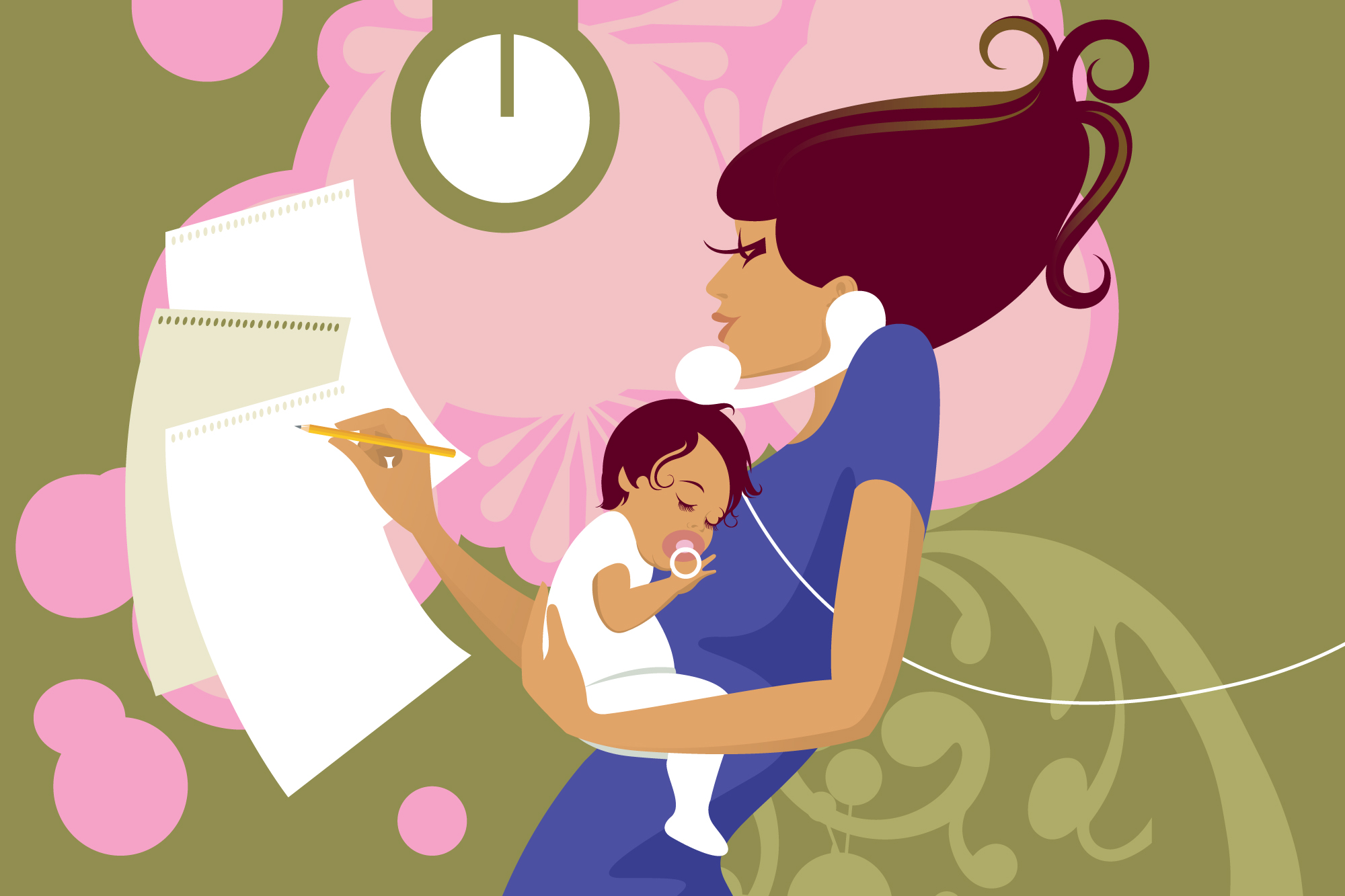
In 1990, during my internship in Chicago, I had my first baby. For interns and residents in those days, maternity leave didn’t exist, so I had to save up vacation and sick days to get four weeks off. At the end of my internship, my son was two-months-old, and I had 10 days to move to Charlottesville, VA to start my ophthalmology residency. We had no family or friends in Charlottesville. My husband, wanting to provide for our young family, bought a house that I did not even see because I could not travel during my third trimester. If you had checked my stress level at the time, it would have been off the chart: a first and new baby, a new job and residency, a long-distance move, a new town, and a new house.
When I was growing up, my dad expected a lot. He always wanted us to do our best and really shoot for excellence in everything. I soon developed a perfectionist attitude, which was great when I had to perform piano recitals or perform microscopic surgery, but I had to adjust for life outside of work. Life is messy and imperfect! I wish someone had told me that earlier.
I want to share what I wished I had known then about work-life integration.
Leave Perfectionism at Work
At home, you have to go with the flow. I thought that going to a football game on a beautiful Saturday afternoon in Chapel Hill, NC with my family would be perfect. I dressed all three children, ages three, four, and six, in team jerseys. My husband was so excited that we had season tickets, and we did our best to engage our children in the game, but the children were not interested. The first quarter wasn’t even over by the time we finished our hot dogs, fries, and drinks, and it was time to go home.
Be Present
Set boundaries from work and turn off technology. Often, I was with my family physically but not mentally. I would get distracted frequently with work. My entire family would notice, including my youngest, who frequently asked, “Is Mommy working again?” I realized that I wanted to be the kind of mom who was fully present. Like practicing a piano piece, I learned to be more efficient in my physical and mental movement. At work, I had to wrap up tasks more completely and anticipate issues that could arise. With time, I got better at work. I also trained my staff to prioritize calls. At home, I learned to shut off technology that tied me to work.
Set Personal Time For Yourself
I was so tied up in work and family that I forgot to take care of myself. Remember the reminder about oxygen masks when you are on a plane: “If you are traveling with a child or someone who requires assistance, secure your mask on first, and then assist the other person.” If you are not taking care of yourself when life becomes more difficult, it will be impossible to take care of your loved ones. I learned to set aside personal time for a bath to relax and recharge.
Be Punctual
Everyone’s time is valuable. On certain days, my job was to pick up my oldest child from afterschool. Racing to finish clinic on time was stressful and sometimes felt downright impossible. But I am a physician, surely the teachers would understand if I was a little late? As it turned out, my son was often the last one picked up. The teachers were polite, but I could sense their frustration. When my five-year-old was making excuses for me being late, I realized my sense of entitlement to other people’s time had to change.
Reassess and Reset at Life Transitions
Major changes in life, such as a baby or a new job, are the best opportunities to reevaluate priorities. It was only after I had all three of my children and moved across three different states that I thought about what my priorities and values were.
One day, I came home briefly and noticed my second child laying on the sofa. When I gave him a big hug, he squeaked, “Ouch!” Our nanny told me that he fell and hit the back of his head on a bed post. I called my husband to meet me in the ER at the hospital where we both worked. When I got there, he was waiting for us with a pediatric neurosurgeon. A CT scan was already ordered, and I felt that my son was in great hands, so I left to run my outpatient clinic in another building.
When I got home, I asked my husband how everything went. He looked at me, disappointed and exasperated, “Nothing’s changed!” During residency, I had no control over my hours, and he understood that. But since I had finished residency, he expected me to be more of a mom. I realized that I also wanted to be more of a mom. Shortly after this incident, I left my academic position for a more flexible job in private practice. I’m not advocating that everyone go into private practice, but it was the right decision for me.
In retrospect, I was so busy putting out fires all the time that I never asked myself what my values and priorities were. You may not know the answer but asking the question will guide you towards a more fulfilling life.
Christine E. Lee, MD, is an ophthalmologist, a graduate of the University of Michigan Medical School and University of Virginia ophthalmology residency. After 25 years of practice in academics and private practices, she now works as a consultant to assist physicians with wellness and work-life integration.







